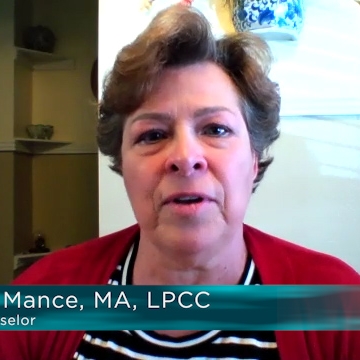New Mexico Approves Master of Science in Anesthesia Program at UNM

Grieving the Loss of Normalcy
Everyone is feeling the effects of a disrupted routine
Feeling sad? Are you short-tempered with your significant other or your children? Do you find yourself scattered and unable to focus?
You're not alone. Grief counselors say these feelings are probably your way of grieving for the loss of your pre-COVID-lockdown life.
In fact, it's good to realize that we're all in the same boat and we need to make allowances for each other, says Nancy Mance, an independent licensed counselor and the Grief Services Program manager for New Mexico's Office of the Medical Investigator.
We all deal with grief differently. And these days of disconnection from our usual networks of family, friends and coworkers can make us all feel insecure and uncertain, she says.
Everyone is carrying around some degree of trauma, Mance says, whether it's from losing a loved one or going through a divorce or job loss. So the ways in which everyday life has changed amid a global pandemic - Is it even safe to go to the grocery store? Where can I find a mask? - only adds to the feeling of "walking around on eggshells," she says.
People are also grieving the loss of milestones and traditions, Mance says. Parents whose kids were going to graduate have lost the rite of passage, just like those young adults have. The same is true for families celebrating Easter or Passover and moms celebrating their first Mother's Day. Everyone is having to find new ways to connect with one another.
Recognize you might have a range of feelings - sadness, lethargy, tearfulness, or feeling down or really reactive. Children might display different emotions: oppositional behavioral, attachment issues or increased fearfulness. "You and your children might not be operating at your best," Mance says.
Her tips for managing the storm:
- Don't beat yourself up. If you're sad that your routine is interrupted, accept that you have a lot of sadness.
- Add predictability to your environment when things are so unpredictable. Adding in that routine can help with uneasiness. Step down from reactivity as much as possible.
- Find ways to connect with loved ones and friends, whether it's through Skype, email, texting or a good old-fashioned phone call.
"The big loss of normalcy now has all of us turned upside-down - kids and adults," says Jade Richardson Bock, interim executive director of the Children's Grief Center in Albuquerque.
Bock emphasizes the importance of setting a daily routine and maintaining boundaries. "They make us all feel safe," she says. "This is one reason why when a tragedy occurs in a family it's important to maintain the routine and expectations of behavior."
Adults may struggle to acknowledge their sadness and anxiety because they believe they must have all the answers for young people who are looking to them to make them feel safe, Bock says.
She offers three tips to address those uncertain feelings:
- It's OK for adults to feel emotion and put words to it: "I feel nervous. I don't know what's going happen." It's OK to cry, she adds. "What you do next is you get up and say, 'Yeah, I'm scared, but we still have to make our bed.'"
- Limit kids' exposure to the news. They don't understand that seeing what's happening in the news every day isn't a new event. For example, she says, studies found that every time children saw a video replay of the planes crashing into the World Trade Center on 9/11, they thought it had happened again. Allowing them to overconsume negative news is going to encourage fear and not encourage resilience. "Be judicious with what you consume," she advises.
- To quote Mister Rogers: "If it's mentionable, it's manageable." Look for good stories and ways to help others. Pick up some trash on your daily walk, write postcards to far-away loved ones, email teachers to let them know how you're doing and find out how they're doing. List two or three things you're grateful for every day.
For more information, visit the Office of the Medical Investigator's Grief Services Program and the Children's Grief Center.